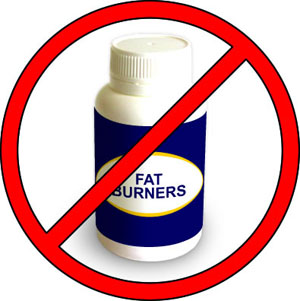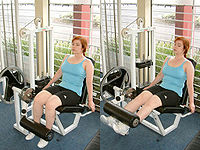Clearly, we have an obesity problem in America and many other countries across our planet. Yet, I propose that we do not have a weight loss problem today. In case you’re confused at this apparent contradiction, consider these statistics:
According to a study from Oxford University published in the International Journal of Obesity, within 3 to 5 years, about 80 percent of all ‘weight losers’ have regained the lost weight, and often gained back a little extra.
According to research by the National Weight Control Registry, that relapse rate may be as high as 95 percent.
For comparison, relapse rates for drug, alcohol and tobacco dependency have been reported in the range of 50-90%.
This means that lots and lots of people have “successfully” lost weight. But not many have kept it off. Therefore, we don’t have a weight loss problem, we have a weight-relapse problem; we have a “not sticking with it” problem. Wouldn’t you agree?
In fact, the fall and subsequent weight-regain usually doesn’t take years. Many people have abandoned their new year’s resolutions within weeks. By the time the Super Bowl party rolls around, their diet is history!
If this is true, then shouldn’t we put more of our attention onto figuring out why you haven’t been sticking with your program, and what you should do about it?
I put together this new list (below) of the top 8 reasons why you fall off the wagon.
Rather than worrying about the minutiae of your diet plan, like whether you should be on low carb or high carb, Mediterranean or Okinawan, vegetarian or meat eater, I propose that if you simply focus on these 8 issues, you’ll start getting more lasting results.
How? By being able to stick with whichever plan you decided was best for you! After all, even if you have the best nutrition program in the world - on paper - it doesn’t do you much good if you can’t stick with it in practice!

THE 8 REASONS
1. No focus: you didn’t set goals, you didn’t put your goals in writing, and/or you didn’t stay focused on your goals daily (by reading them, affirming them, looking at a vision board, etc.)
2. No priorities: you may have set a goal, but you didn’t put it on or near the top of your priorities list. For example, your goal is six pack abs, but drinking beer and eating fast food on the weekend is higher on your priorities list than having a flat stomach.
3. No support system: you tried to go at it alone; no buddy system, training partners, family, spouse, friends, mentors or coaches to turn to for information and emotional support when the going got tough.
4. No Accountability: you didn’t keep score for your own accountability – with a progress chart, weight record, measurements, food journal, training journal, and you didn’t set up external accountability (ie, report to someone else or show your results to someone else)
5. No patience: you were only thinking short term and had unrealistic expectations. You expected 10 pounds a week or 5 pounds a week or 3 pounds a week, so the first week you lost “only” 1 or 2 pounds or hit a plateau, you gave up.
6. No planning: you winged it. You walked into the gym without having a workout in hand, on paper, you didn’t plan your workouts into your weekly schedule; you didn’t have a menu on paper, you didn’t make time (so instead you made excuses, like “I’m too busy”)
7. No balance: your diet or training program was too extreme. You went the all or nothing, “I want it now” route instead of the moderate, slow-and-steady wins the race route.
8. No personalization: your nutrition or training program was the wrong one for you. It might have worked for someone else, but it didn’t suit your schedule, personality, lifestyle, disposition or body type.
So there you have it – 8 reasons why most people fall off the wagon! Have you been making these mistakes? If so, the solutions are clear and simple: focus, prioritize, get support, be accountable, be patient, plan, balance and personalize.

About the Author:
Tom Venuto is a fat loss expert, lifetime natural (steroid-free) bodybuilder, independent nutrition researcher, freelance writer, and author of the #1 best selling diet e-book, Burn The Fat, Feed The Muscle: Fat-Burning Secrets of The World’s Best Bodybuilders & Fitness Models (e-book) which teaches you how to get lean without drugs or supplements using secrets of the world's best bodybuilders and fitness models. Learn how to get rid of stubborn fat and increase your metabolism by visiting: www.burnthefat.com
Read more...



























